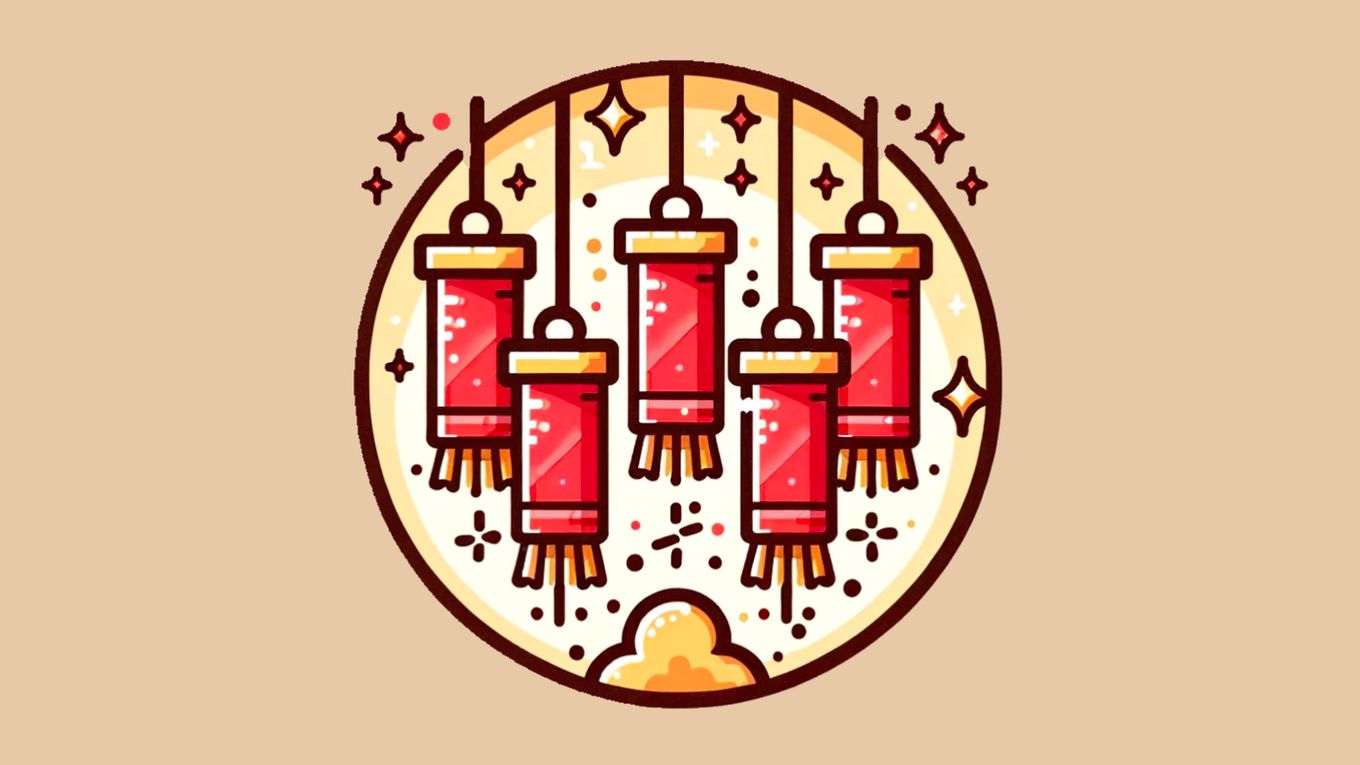Why Do Chinese People Insist on Returning Home for the New Year?
In China, celebrating the New Year is a tradition with a long history and rich cultural background. According to legend, “Nian” was a monster that would come out on New Year’s Eve to wreak havoc, causing people great distress. However, “Nian” was afraid of the color red, firelight, and the sound of firecrackers. Therefore, every New Year’s Eve, households would paste red paper and set off firecrackers to drive away “Nian.” This custom gradually evolved into today’s New Year celebrations.

Gods and Worship
At the end of the year and the beginning of the new one, ancient Chinese people would worship many gods, including mythological figures like Nüwa and Fuxi, as well as various natural deities such as the gods of heaven, earth, wind, rain, mountains, water, and fire. The main purpose of these rituals was to express gratitude to the gods for providing sunlight and rain and for teaching humans the skills needed to survive and prosper.
In ancient China, people believed that human survival and development depended on the blessings of the gods. For example, fire brought great benefits, ending the primitive way of life, and was believed to be a gift from the fire god, Zhulong. Therefore, fire temples were built in many places to worship the fire god.
Modern New Year Rituals
Although belief in the gods has gradually faded with the passage of time, the traditions of worshiping gods and ancestors during the New Year have been preserved in various regions. For instance, the 23rd day of the 12th lunar month is the day to worship the Kitchen God, as people highly value the stove that can cook raw meat and grains into food. During the Spring Festival, the God of Wealth is also a highly favored deity, and people set off firecrackers to welcome the God of Wealth, hoping for prosperity in the new year.
The New Year is closely linked to the concept of returning home. Every Spring Festival, people return to their hometowns to reunite with their families. The renowned cultural scholar Feng Jicai once said, “Every time I see the crowded airports, train stations, and long ticket lines during the Spring Festival travel rush, I am moved by the profound importance of the New Year culture in the hearts of Chinese people.” The emotional bond of reunion during the Spring Festival reflects the deep feelings for family and hometown.
The concept of home is one of the strongest traditional values for Chinese people. Almost all traditional Chinese festivals have “family reunion” at their core. This concept has been rooted in the social structure centered around families, clans, and regions for thousands of years. Egyptian Ambassador to China Assem Hanafi also observed that both Egyptians and Chinese people place great importance on family and kinship during the Spring Festival. He remarked that in today’s turbulent world, people everywhere need the happiness that festivals bring.
The Symbolism of the New Year’s Eve Dinner
The New Year’s Eve dinner carries the expectation of reunion for Chinese people. In times of material scarcity, the New Year’s Eve dinner was the most sumptuous meal of the year for every family. Today, although living standards have greatly improved, the dinner still symbolizes family reunion and deep affection. The dishes served are full of symbolic meanings of unity and prosperity. In the north, people make dumplings that resemble gold ingots, symbolizing wealth. In the south, there are whole fish and meatballs, symbolizing abundance and reunion.
As times change, the form of the New Year’s Eve dinner has become more diverse. Many families choose to dine out at restaurants instead of cooking at home. However, regardless of the form, the taste of home, the warm love, and enduring familial bonds remain unchanged.
The Spring Festival is not just a holiday for Chinese people; it is a grand ceremony of gratitude. Whether it is worshiping gods and ancestors or reuniting with family, it is all about the hope for a bountiful, peaceful, and harmonious life. The continuation of the Spring Festival traditions is a testament to the enduring gratitude and deep-seated importance of family and kinship in the hearts of Chinese people.
